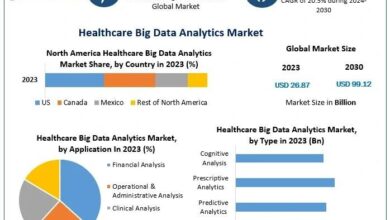Manisha Banthia, Vice President, Data & Analytics, Global Services, Fiserv

Manisha Banthia is the Vice President of Data and analytics at Fiserv Global Services, where she leads a team of experts in developing cutting-edge analytics solutions that leverage AI and ML. She has 25 years of experience building analytics teams across various organisations. At Fiserv, she is responsible for integrating analytics solutions with Fiserv products and providing advisory services to its clients. She also oversees the data management and analytics solutions that were recently added to the analytics portfolio.
Can you tell us about your AI journey?
My career journey started over 25 years ago when AI was just beginning to find its place in financial services. It all began with a keen interest in data analysis and technology, eventually leading me to an enriching career path. My professional journey started with a large bank where I handled data-centric responsibilities encompassing risk, marketing analytics, and financial profitability computations. This experience laid the groundwork for my venture into creating analytical solutions, extending my expertise across the fintech sector. Transitioning to a leadership role in analytics and data science at a multinational IT firm, I honed my skills, innovated solutions, and identified growth opportunities through advanced technologies. I joined Fiserv in 2021 as Vice President of Data and Analytics, focusing on harnessing data’s transformative power and establishing a high-performing team to drive value for our clients. Overseeing the Data, Analytics, and Research teams, I focus on delivering innovative solutions, evaluating new technologies, and fostering collaboration with business leaders and clients. Throughout my journey, I’ve received prestigious recognitions like ‘Data Leader of the Year’ at Bonhill’s Women in IT Asia Awards 2023 and the ‘Techinist’ Award from Wequity, reaffirming my dedication to advancing AI in financial services. I am committed to exploring new horizons and finding fulfilment in continually learning and leveraging AI to drive meaningful change in the industry.
What is your area of expertise in AI, and what made you choose it?
My area of specialisation in AI centres on its strategic application within the business realm, which transcends mere model development or data analysis to cover the utilisation of AI to drive tangible outcomes. This encompasses the thoughtful integration of AI technologies to solve complex business challenges, enhance decision-making processes, and unlock new opportunities for growth and efficiency. By focusing on the practical implications of AI, my approach aims to leverage these advanced technologies as tools for automation or analytics and as catalysts for transformation and innovation within organisations. My journey into this field stems from a blend of my Master of Business Administration background and a passion for technology.
During my formative years, I immersed myself in the banking world and the potential of artificial intelligence and machine learning to revolutionise traditional practices. My love for coding and analytical thinking —skills I honed through various computer science courses undertaken alongside my MBA—propelled my fascination further. The data query and analysis process, especially its application in solving business problems, resonated with me, igniting a desire to explore this synergy further. My expertise thus lies at the confluence of domain-specific knowledge and technical acumen. Whether crafting algorithms or deciphering complex datasets, I thrive on the challenge of bridging the gap between technology and business strategy. This holistic approach, honed over years of experience, defines my dedication to leveraging AI to address real-world business challenges.
How did generative AI impact your field of work?
In the swiftly advancing domain of AI, Generative Artificial Intelligence (GenAI) has already had a profound impact, serving as a pivotal force in reshaping industry paradigms, and the Fintech sector is no exception. Introducing GenAI into the ecosystem can significantly enhance operational efficiency, data integrity, and client engagement methodologies. By automating complex tasks, GenAI has dramatically accelerated processes, ensuring tasks that once took hours are now completed in minutes with enhanced accuracy. This leap in operational efficiency has streamlined internal workflows and bolstered data integrity, leading to more reliable insights and decision-making.
Describe some challenges you have faced in reaching where you are now.
Initially, there was a belief that success in Data and AI required an engineering background. However, my economics degree proved valuable, offering strategic insights. To fully engage in AI, I pursued coding skills and data analysis to complement my economics and finance knowledge. Over time, Data Analytics evolved from a niche to a cornerstone of modern business, paralleling my career journey. I remain dedicated to its potential, which has become central to strategic decision-making.
Do you see enough female leadership roles in corporates? In your opinion, what should change?
The fintech sector has made meaningful progress in gender diversity, with increasing emphasis on women in senior leadership. However, full gender parity remains a work in progress, highlighting the need for sustained efforts to dismantle barriers. A significant barrier is women’s reluctance to pursue leadership roles due to acceptance of the status quo and fear of failure. To counter this, empowering women through direct responsibilities is crucial. Mentorship and sponsorship play pivotal roles in supporting women’s leadership journeys.
Fiserv has initiated innovative efforts to bridge this gap, such as the Women’s Impact Network (WIN) ERG, offering professional development, networking, and leadership opportunities. Additionally, the Fiserv Leading Women Program fast-tracks women’s career growth through networking, skill development, and mentorship. At the same time, the Rise Up program supports women in new leadership roles through specialised training modules. Blended training approaches ensure associates stay updated with technology and prepared for their roles.
What do you want to say to women who wish to build careers in AI and other tech-related fields?
To aspiring women in AI and tech: Invest time in learning—it’s crucial. Pursue knowledge through education and self-guided exploration. Apply what you learn, integrating AI into your roles. Seek mentors for guidance. Learning opportunities often arise unexpectedly. Network and seek advice from seasoned professionals. Follow your passion in engineering and tech; it requires commitment, analytical skills, and problem-solving passion. Embrace your interests and strengths for success.



